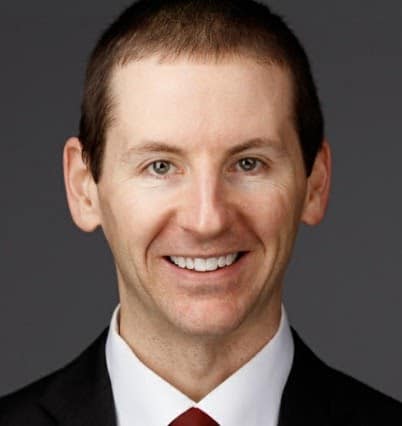To make Wealthtender free for readers, we earn money from advertisers, including financial professionals and firms that pay to be featured. This creates a conflict of interest when we favor their promotion over others. Read our editorial policy and terms of service to learn more. Wealthtender is not a client of these financial services providers.
➡️ Find a Local Advisor | 🎯 Find a Specialist Advisor

Financial planning is complicated. Developing an investment strategy, creating an estate plan, ensuring proper risk management, and even many everyday personal finance matters may require the help of a good financial advisor. But is your financial advisor a “fiduciary”? And what exactly does “fiduciary” mean?
What is a Fiduciary Financial Advisor?
In short, a fiduciary financial advisor must recommend the best investment solutions for their clients. It is not enough that a product is simply “suitable.” A higher standard applies to a fiduciary advisor.
You shouldn’t assume a financial advisor is a fiduciary, and before you hire an advisor, you should ask explicitly if they will always act in your best interest as a fiduciary. Fortunately, you can easily find fiduciary financial advisors today if you know what to look for and the right questions to ask.
Certified Financial Planners (CFP) are Fiduciaries
One way you can be sure your financial advisor will act as a fiduciary includes hiring a Certified Financial Planner, often referred to as a CFP. Upon earning the Certified Financial Planner designation, each CFP acknowledges they will adhere to the CFP Board’s Code of Ethics and Standards of Conduct and act as a fiduciary when providing financial advice to their clients.
This means the CFP professional places each client’s well-being above their own and that of the firm for whom they work. Moreover, the fiduciary duty requires the proper disclosure of material conflicts. In practice, the advisor must act with care, skill, prudence, and diligence so that they can best serve the client’s objectives. Finally, the advisor must comply with all laws and regulations.
“Fiduciary” Is Still an Unclear Term
What is problematic today is that the term “fiduciary” is still not widely known and understood. Many investors are fooled by generic terms such as “financial advisor” and “senior planner” when seeking an advisor. Be careful. Believe it or not, there are so-called certification programs that can be completed in a few days that some advisors use to suggest expertise.
Making it all the more challenging to research and find a fiduciary advisor is that the onus is on the individual. Most people are not financial experts. They also do not have the time to sift through dozens of advisory firms to find the right fiduciary for their situation.
Choose an Advisor Who Works in Your Best Interests
Why is it so important that your financial advisor be a fiduciary? If your advisor is not working in your best interests, then he or she might attempt to sell you a product that is not the best for your individual situation.
For example, a sub-optimal investment solution might line the advisor’s pocket with commissions and high-fund fees, more than it helps you achieve your long-term goals. Or a non-fiduciary advisor could recommend complex products and portfolios uneasy to understand, in hopes clients you won’t call their strategy into question.
How Do Fiduciary Financial Advisors Mitigate Conflicts of Interest?
In order to reduce conflicts of interest, many fiduciary financial advisors may choose to not offer certain products directly, and instead, recommend their clients purchase products elsewhere. In other instances, when fiduciary advisors offer their clients certain products or services, they will disclose any conflicts of interest regarding their recommendation, place their clients’ interests ahead of their own, and most importantly, act without regard to their financial interests.
We asked fiduciary financial advisors if there are products or services they don’t offer directly as a fiduciary but do sometimes recommend their clients consider purchasing. Here’s what they had to say:

“I might sometimes recommend a SPIA for a small portion of a retirees income plan. Although annuities are often complex, these are very simple. In exchange for a lump sum of money the client receives a fixed payment for life. It’s quoted before purchase so the tradeoff is known with no surprises.
These can be useful for providing a certain amount of income that the client can rely on regardless of what happens in the market or how long they might live. These might be good for retirees that have adequate savings in a 401k or IRA, but no pension, or a Social Security benefit that is smaller than they would like.”
Brandon Renfro, CFP®, Ph.D., RICP®, EA | Belonging Wealth Management

“As a fiduciary I have conviction that all our clients should own some form of Identification Insurance/Protection. Many of our clients can afford the financial obligations that happen in a breach. However, the time involved for many busy people would be overwhelming without a third party working on their behalf. The challenge for me, as a fiduciary, is finding a quality product solution and staying on top of the ever evolving features and benefits.”
Darryl Lyons, CFP®, ChFC®, BFA, AIF | PAX Financial Group
How to Find a Fiduciary Financial Advisor
You’ll find many fiduciary financial advisors featured on Wealthtender ready to help you develop a personalized plan to achieve your long-term goals.
For example, you can search the Wealthtender Guide to Certified Financial Planner professionals to find CFP fiduciary financial advisors. You can also search the Wealthtender Guide to XY Planning Network (XYPN) Financial Advisors as each XYPN advisor swears to a fiduciary oath. And you can visit the XYPN website to search among hundreds of fiduciary advisors.
Chartered Financial Analysts also agree to a fiduciary duty when working with clients, and you’ll find several featured on Wealthtender.
Beyond Wealthtender, you can also check out the CFP Board’s website. Simply enter your location and the planning services you seek. The “Find a CFP Professional” search tool quickly displays CFP professionals in your area. A Certified Financial Planner professional adheres to a strict code of conduct, which includes agreeing to a fiduciary duty.
In addition to the CFP Board’s website, investors seeking a fiduciary financial planner can find a NAPFA financial advisor on Wealthtender or visit the NAPFA (National Association of Personal Financial Advisors) website and use the “Find an Advisor” search function. Financial professionals who are NAPFA members are fee-only fiduciaries complying with a strict code that is comprehensive, client-centered, and demonstrates competence.
One more due diligence tip: review an advisor’s Form ADV via the SEC Investment Adviser Public Disclosure IAPD website. A Registered Investment Advisor (RIA) must register with the SEC. That relationship requires upholding a fiduciary duty to clients. An added step, though, is to dig into the RIA’s form ADV. The ADV form simply discloses business practices, conflicts of interest, and the background of the advisory firm and its employees who give advice.
How Much Should It Cost to Work With a Fiduciary?
The good news is that the cost of hiring a fiduciary advisor may not be any more expensive than hiring a non-fiduciary. Often, fiduciaries work on a fee-only basis, which often means an annual planning charge of a few thousand dollars per year. Many advisors’ fee structure is based on “assets under management” whereby you pay a percentage of your portfolio to the advisor each year. In general, you should pay no more than 1% per year.
The Bottom Line
A fiduciary advisor is required to act solely in their clients’ best interests. They agree to put the client’s financial circumstances above their own. With so many opaque investment products available these days, working with a fiduciary is more important than ever.
Answers to Reader Questions
Are All Fiduciary Financial Advisors “Fee Only”?
Not all fiduciary financial advisors hold themselves out to be “fee only” financial advisors. While a fiduciary financial advisor does not need to be “fee only”, many advisors choose to exclusively earn income from fees, and not commissions, based on a belief that the “fee only” method of compensation is the most transparent and objective method available.
NAPFA, an organization of financial advisors that requires its members only work with a “fee only” structure states it this way:
NAPFA’s position is that the Fee-Only method of compensation is the most transparent and objective method available. This model minimizes conflicts and ensures that your financial planner acts as a fiduciary. Fee-Only planners are compensated directly by their clients for advice, plan implementation and for the ongoing management of assets. All NAPFA members are required to work only within the Fee-Only structure, accepting no commissions for their work.
Fee-Only financial advisors may be paid hourly, as a retainer, as a percentage of assets (AUM), or as a flat fee, depending upon the planner you choose.
Is Edward Jones a Fiduciary?
Edward Jones offers a diverse mix of financial products and services to its clients, at times acting in a fiduciary capacity. You can visit the Edward Jones website to learn how their financial advisors are compensated and the types of fees and commissions you may incur for each of the products and services they offer. You should also ask your Edward Jones financial advisor how they will be compensated for any products and services.
Read this article to learn more: Is Edward Jones a Fiduciary?
Here are links to a few resources available from Edward Jones with more information about the types of fees and commissions you may pay depending upon the type(s) of accounts you open with them:
- Understanding How We Are Compensated for Financial Services – PDF format (published by Edward Jones)
- Material Facts Regarding Conflicts of Interest – PDF format (published by Edward Jones)
- Understanding Our Brokerage and Investment Advisory Services – PDF format (published by Edward Jones)
- Edward Jones Relationship Summary – PDF Format (published by Edward Jones)

About the Author
Mike Zaccardi, CFA®
Mike is a freelance writer for financial advisors and investment firms. He’s a CFA® charterholder and Chartered Market Technician®, and has passed the coursework for the Certified Financial Planner program.
Learn More About MikeTo make Wealthtender free for readers, we earn money from advertisers, including financial professionals and firms that pay to be featured. This creates a conflict of interest when we favor their promotion over others. Read our editorial policy and terms of service to learn more. Wealthtender is not a client of these financial services providers.
➡️ Find a Local Advisor | 🎯 Find a Specialist Advisor

